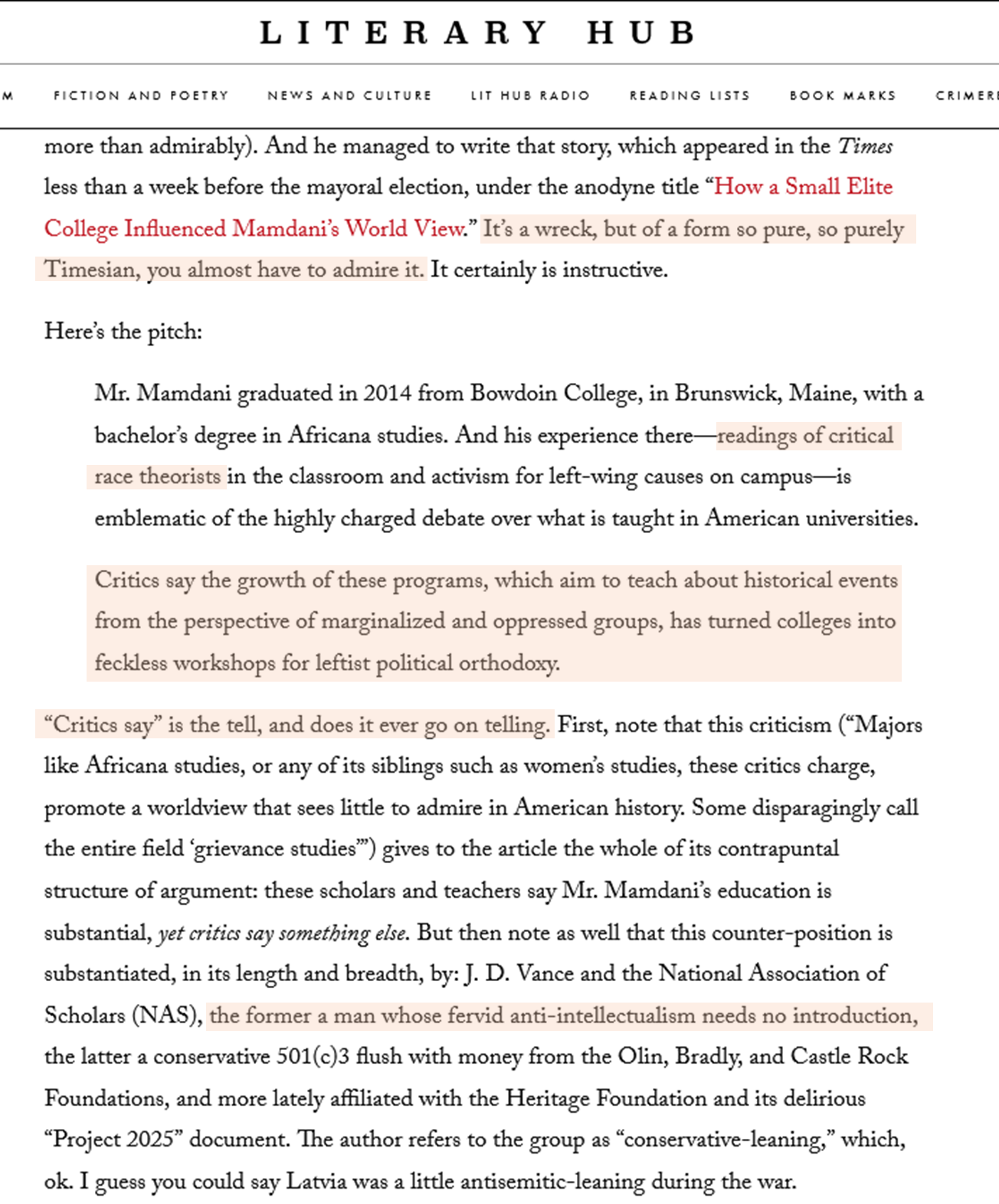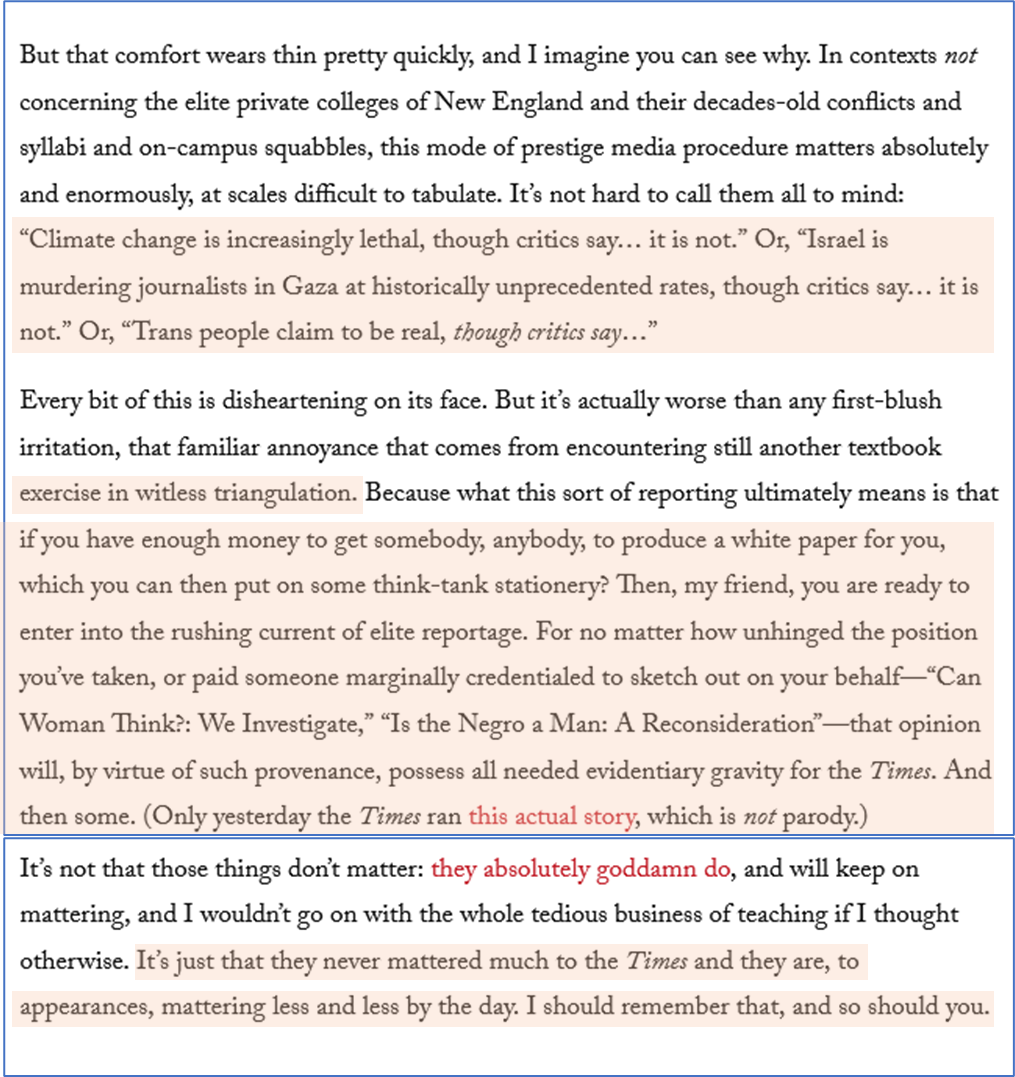Screen shot of one of the pages of the essay -
...
Here’s the pitch:
Mr. Mamdani graduated in 2014 from Bowdoin College, in Brunswick, Maine, with a bachelor’s degree in Africana studies. And his experience there—readings of critical race theorists in the classroom and activism for left-wing causes on campus—is emblematic of the highly charged debate over what is taught in American universities.
Critics say the growth of these programs, which aim to teach about historical events from the perspective of marginalized and oppressed groups, has turned colleges into feckless workshops for leftist political orthodoxy.
“Critics say” is the tell, and does it ever go on telling. First, note that this criticism (“Majors like Africana studies, or any of its siblings such as women’s studies, these critics charge, promote a worldview that sees little to admire in American history. Some disparagingly call the entire field ‘grievance studies’”) gives to the article the whole of its contrapuntal structure of argument: these scholars and teachers say Mr. Mamdani’s education is substantial, yet critics say something else. But then note as well that this counter-position is substantiated, in its length and breadth, by: J. D. Vance and the National Association of Scholars (NAS), the former a man whose fervid anti-intellectualism needs no introduction, the latter a conservative 501(c)3 flush with money from the Olin, Bradly, and Castle Rock Foundations, and more lately affiliated with ...

